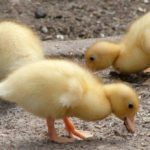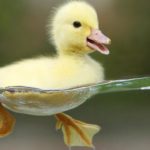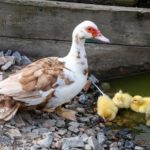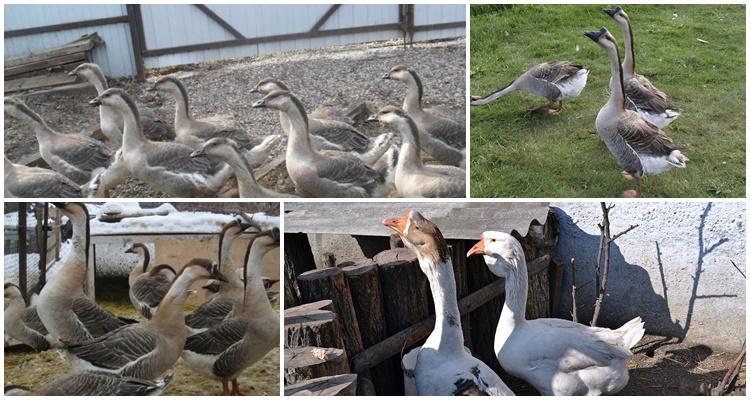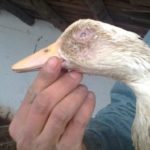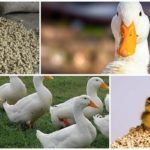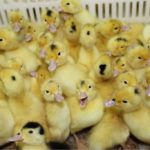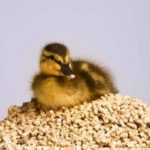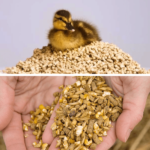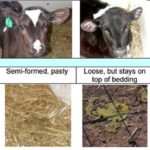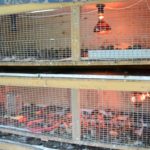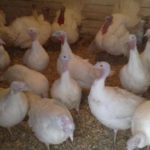Diarrhea in ducklings can be a sign of many diseases, and in itself is a threatening symptom. Dehydrated birds die quickly - sometimes within a few hours. That's why treatment of diarrhea in ducklings at home conditions can rarely be called the right choice - it is better to immediately contact a veterinarian and save at least part of the livestock. Diagnosing the disease without laboratory tests is difficult.
Causes of diarrhea in ducklings
Diarrhea in newly hatched ducklings is a common occurrence. The main cause of the disease is improper feeding, namely vitamin B deficiency. Along with diarrhea, the following symptoms of the disease are often encountered:
- Unhealthy appearance, ruffled feathers, watery eyes.
- Paralysis or nervous tic of the wings.
- Throwing the head back.
- Slow weight gain, poor appetite.
All signs indicate a lack of vitamin B in the diet. To avoid this condition, it is necessary to carefully monitor the nutrition of young ducks, and, if necessary, balance the diet with green grass, fruits and vegetables.
Diarrhea in young ducks can also be caused by infectious diseases, for example, viral enteritis. The bird's stool is green or yellow. At the same time, symptoms are observed - weakness, weight loss, decreased egg production. Bacillary white diarrhea is common. Ducks that have contracted the disease will forever remain carriers and will infect the hatched ducklings. Therefore, most farmers prefer to remove such birds from breeding and fatten them for slaughter.
Very rarely, ducklings may develop coccidiosis, a severe bacterial disease that causes foamy or bloody diarrhea. Coccidiosis appears in poultry houses where the conditions for keeping animals are violated - in dark, poorly ventilated, damp buildings.
Diagnostic methods
Pasteurellosis, colibacillosis, and echinostomatidiasis also have the same symptoms as coccidiosis. It is impossible to make an accurate diagnosis without laboratory tests. To do this, the doctor takes stool samples from the bird and sends it for testing. After sowing the material onto a nutrient medium, they look at the nature of the grown colonies - for each microorganism they are individual and not similar to each other.
What to give ducks for diarrhea?
Viral enteritis can be cured only after an accurate preliminary diagnosis. For therapy, a weak solution of potassium permanganate is poured into the bird's throat. Treatment of coccidiosis should begin with sorting the livestock - sick birds must be moved to a separate poultry house, and the room must be disinfected.
The antibiotic Norsulfazole, which is dissolved in drinking water, is most effective against the causative agent of coccidiosis. After the course of treatment, you can add a second drug - Osarsol. If the birds do not drink the water with the medicine, try adding Furazolidone to the food. The dose is selected depending on the age and live weight of the ducks. The standard course of treatment lasts up to 2-3 weeks.
If a diagnosis of colibacillosis is made, then therapy will not help. Sick animals will have to be killed, and the carcasses will have to be disposed of - they cannot be given to carnivorous animals. Pasteurellosis, coccidiosis and echinostomatidiasis are very difficult to treat. You will have to prescribe several potent antibiotics from different groups. It is easier to vaccinate ducklings against these diseases at a certain age.
Prevention
If diarrhea is caused by poor diet, you need to immediately balance your diet. The most vitamin B is found in cabbage, potatoes, and quince. Therefore, it is useful for ducks to feed scraps and scraps from the kitchen table. Some farmers even give ducks chicken or pork liver, which contains a huge amount of the named vitamin, as well as hemoglobin and iron. If grain is included in the diet, it must be fresh, from the same year, without mold or signs of powdery mildew.
To prevent coccidiosis, they adhere to the rules of poultry hygiene - ventilate the premises, carry out regular cleaning, and also isolate the arriving new livestock from the old flock for 2 weeks. The poultry house is regularly disinfected. Young birds are kept separately from adult birds.
Each room has its own cleaning products, individual feeders and drinking bowls. Ducklings are given a dose of Norsulfazole once every 2 weeks to prevent coccidiosis until 2-3 months of age.

